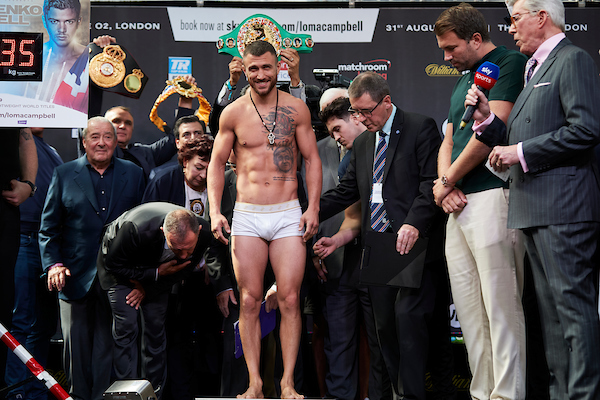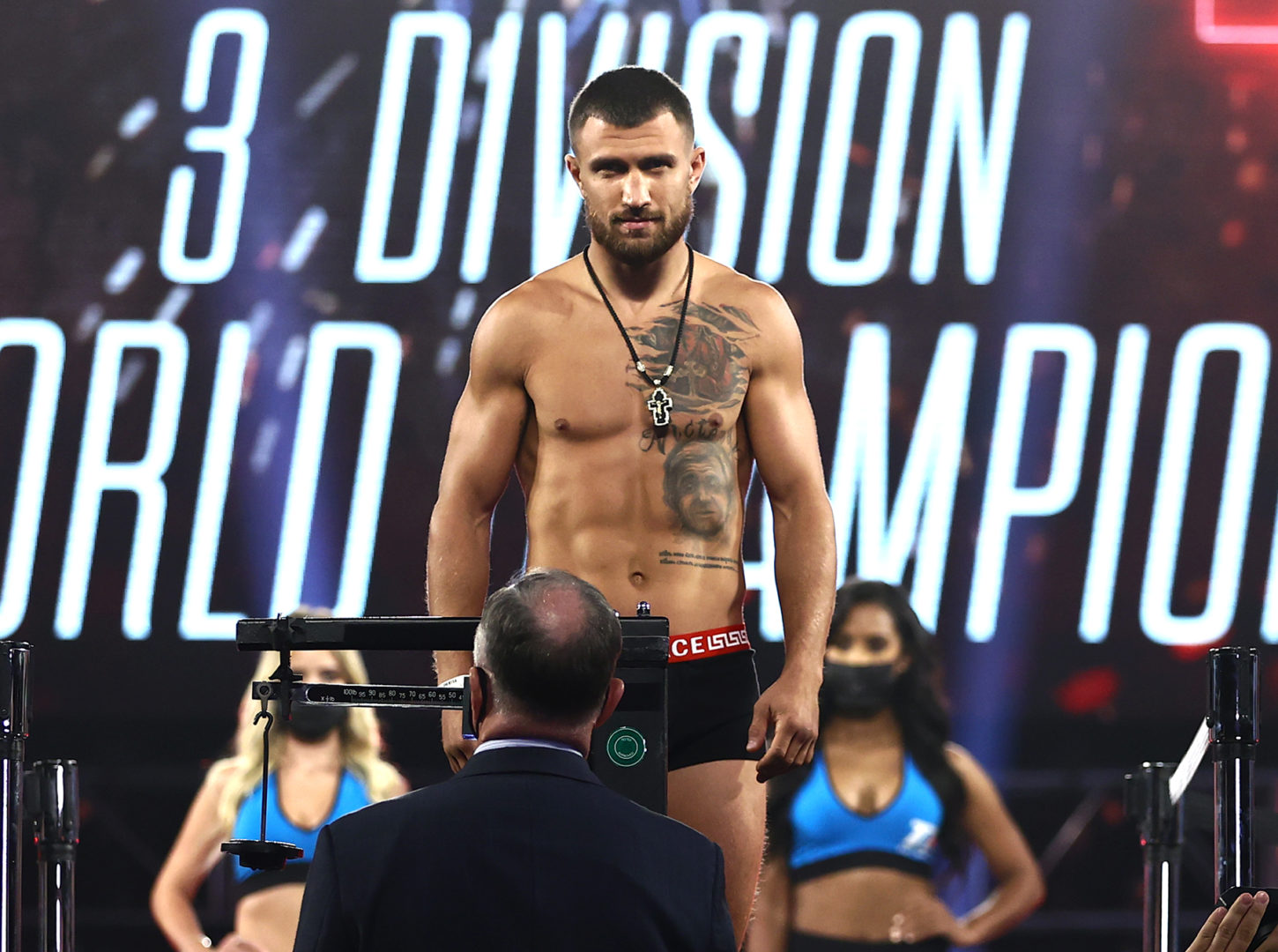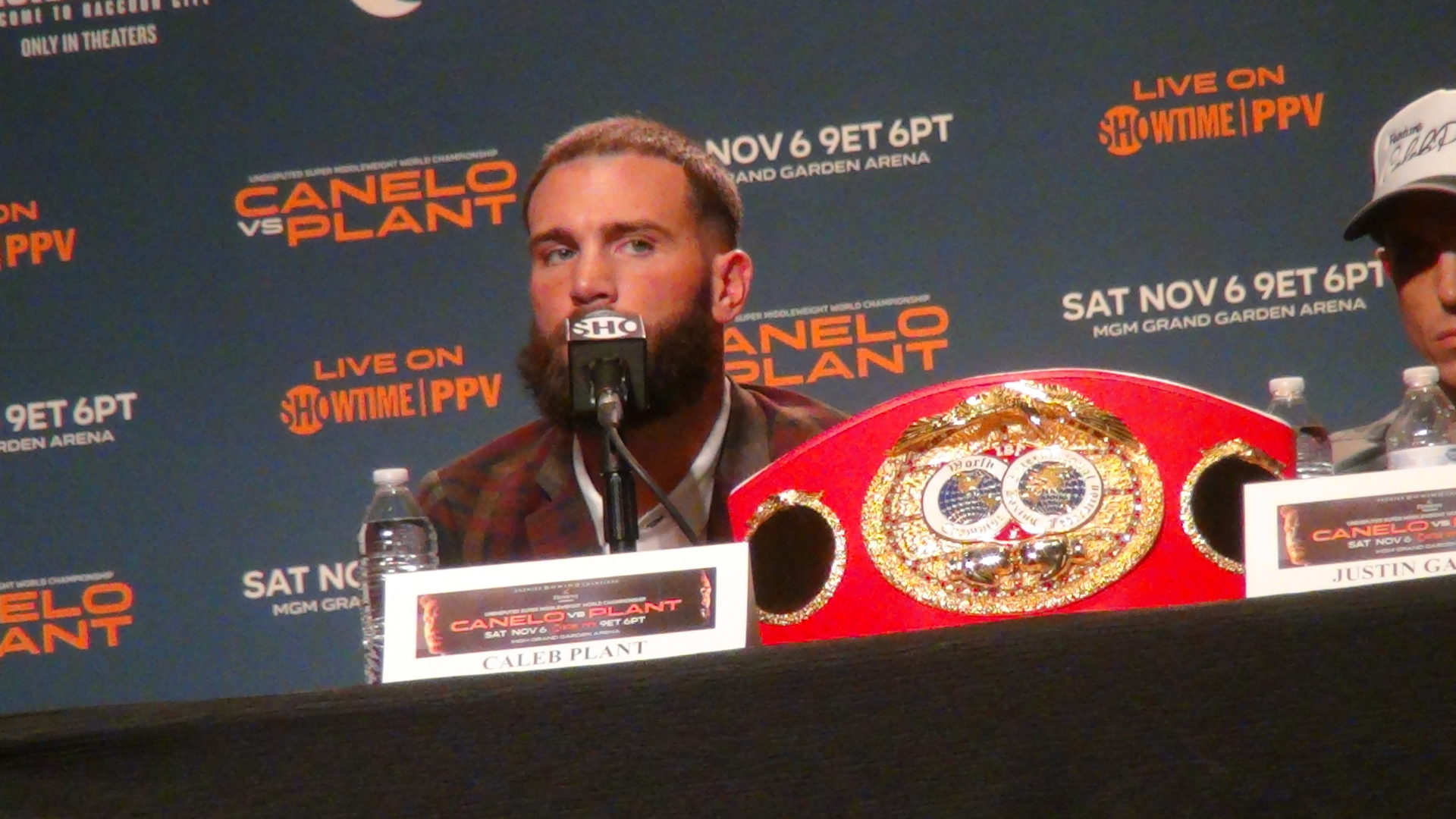

By Norm Frauenheim-
With apologies to Floyd Mayweather Jr., Andre Ward and few others, defeat is a little bit like a scar. It’s hard to get through a boxing career without one.
The key is what to do with it. There’s denial. There’s delusion. There’s blaming someone else. Anyone else.
But there’s never much healing in any of that, at least not in a sport so singularly lonely. There’s no backup quarterback to blame. No dog who ate the homework.
There’s only the fighter, looking in the mirror and at months of shadow-boxing with the personal torment left in the turbulent wake of a loss. Tough to win that one, yet a victory is often the defining fundamental in a game that’s always been about adversity.
Vasiliy Lomachenko has figured that out.
His understanding of defeat, even his empathy for a bitter rival now dealing with one, is evident in the days before the Ukrainian’s bid to get back into the lightweight title mix Saturday (ESPN, 6 pm PT/9 pm ET) against Richard Commey at New York’s Madison Square Garden.
His date with Commey comes just two weeks after Teofimo Lopez lost the 135-pound belts and his composure to George Kambosos Jr. in the same building. Lopez upset Lomachenko, taking the belts and knocking out his pound-for-pound supremacy with a unanimous decision in October 2020.
Lopez went on to rip Lomachenko, ridiculing him for saying he suffered an injury to his right shoulder. Lomachenko moved on, underwent surgery, a second procedure on a shoulder that had been injured against Jorge Linares in his first fight at lightweight.
Lomachenko, who still believes the scorecard loss to Lopez should have been judged a draw, wanted a rematch.
No way, Lopez said often and always with a dismissive tone that suggested Lomachenko (15-2, 11 KOs) was yesterday’s news.
He’s not, of course. Commey (30-3, 27 KOs) is his second fight in a comeback that began with a ninth-round stoppage of Masayoshi Nakatani in June.
Given the trash-talking rancor left over from Lopez’s upset of Lomachenko nearly 15 months ago, however, it was easy – too easy – to think Lomachenko might experience some schadenfreude – a uniquely German word that means taking pleasure in another’s misfortune.
No, Lomachenko said Thursday during a session with reporters after the formal part of the final news conference for the Commey bout.
“I am not happy, because I understand what he’s feeling,’’ Lomachenko said when asked how he felt about the Lopez loss. “I was in the same situation.’’
It’s a situation that the once-beaten Lopez is just beginning to confront. Questions linger, including troubling news about his physical condition at opening bell. ESPN quoted a doctor as saying he could have died because of a breathing issue.
Lomachenko went on to say that he was happy Lopez would recover and “get out of this situation.’’
The situation – dealing with defeat – is a place he has been a couple of times. He had to come back from defeat after just his second pro bout – a loss to Orlando Salido. In retrospect, that defeat might have been more of a bruising way to pay some apprenticeship dues against a tough gatekeeper.
Lomachenko arrived in the pro ranks as perhaps the most celebrated Olympic boxer ever. He won two gold medals, 2008 and again in 2012. Lomachenko responded to Salido’s brutal welcome to the pros by winning titles at featherweight, junior-lightweight and lightweight.
He did, he says, mostly because of the way a defeat forces a fighter to accept accountability and then re-commit to the craft.
“Losing is not comfortable, but if you have a goal, you have to continue,’’ he said.
For Lomachenko, the goal has always been there. He talked about it in a compelling, Top Rank-produced video with Hall-of-Fame inductee Roy Jones Jr., his boyhood hero.
“You need to have just one dream,’’ he said. “You need to go to bed with your dream. You need to get up with your dream.
“You need to live with your dream.’’Sometimes, that means you have to come back from a nightmare





















